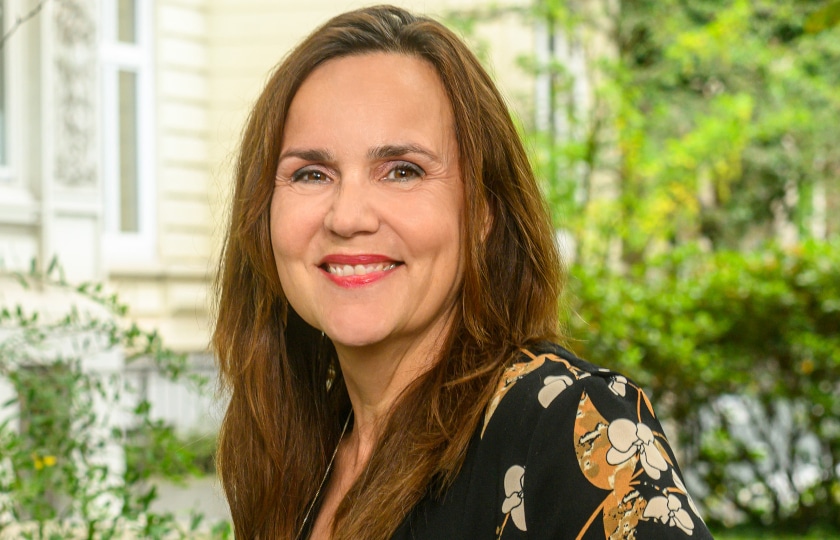After a successful test run in Bremen, a science team is researching how the local news and information app “molo.news” can be made available nationwide. The BMBF is funding the project with 1.5 million euros.
Local news, news and events from clubs or cultural events – all this can be found in the molo.news app. Researchers from the Universities of Bremen and Leipzig as well as the Leibniz Institute for Media Research initially developed and tested it for the Bremen region. Until 2026, they are researching how the app can be made available nationwide. They are receiving 1.5 million euros in funding from the Federal Ministry of Education and Research (BMBF) as part of the VIP+ program (“Validation of the Technological and Social Innovation Potential of Scientific Research”).
Customised News from Media Companies, Associations or Educational Institutions
molo.news is a free local news and events platform that can be used through an app for iOS and Android. In addition to the content of various regional media outlets, users can also find news and events from other institutions and collectives, such as educational institutions, local associations, social movements or organisers of cultural events. In the app’s newsfeed and event calendar, users can have the information displayed according to their own interests, without ending up in so-called filter bubbles. molo.news is data-saving and does not collect any information from users. The app associated with the platform was developed jointly by three research institutions between 2017 and 2019: the Leibniz Institute for Media Research │ Hans-Bredow-Institut (HBI), the Institute for Information Management Bremen (ifib) and the Centre for Media, Communication and Information Research (ZeMKI) at the University of Bremen. A special feature was the co-creation approach: the platform was developed together with journalists, members of associations, initiatives and public institutions.
Test in Six German Cities
“After the successful launch of a test distribution of molo.news in Bremen and the surrounding area – with more than 2,700 users – it will now be tested how the platform can be further developed to enable a nationwide launch,” says project leader Professor Andreas Hepp (ZeMKI, University of Bremen). Over the next three years, Professor Andreas Hepp, Professor Christian Pentzold (University of Leipzig) and Professor Wiebke Loosen (Leibniz Institute for Media Research | Hans-Bredow-Institut in Hamburg) will research how the concept of molo.news can be transferred to other regions. Therefore, they will test and revise the platform, which was developed especially for Bremen, in six large, medium-sized and small German cities. “Leipzig, with its diverse civil society and media landscape, is an ideal place to try out the molo.news offering,” explains Christian Pentzold. The project also aims to develop a sustainable business model for the long-term operation of the platform. It also validates income opportunities for freelance journalists. The project is supported by various media organisations and experts in public interest journalism.
Project Description
Breaking new ground together – that is the basic idea behind molo.news. Based on empirical research findings and the general description of problems, users and providers of local and regional information were involved in the development of the relational information platform for urban publics, taking the Bremen region as an example, with their wishes for a local communication environment that promotes the public.
The platform molo.news reaches its audience via a smartphone app in which content from different professional and non-professional providers relevant to the local public flows together in a uniform news feed. For this, molo.news has already been rated by experts as “best practice” and “practical innovation development” for urban publics.
The validation project takes up the basic research on urban public sphere and the “proof of concept” of the experimental platform molo.news, which was initially developed for the city of Bremen and its surroundings. It validates its nationwide scalability on the basis of one large, medium and small city each in western Germany (Bremen, Delmenhorst and Bremervörde) and eastern Germany (Leipzig, Markkleeberg and Großpösna).
Development in Co-Creation
molo.news was developed in “co-creation”, which means that many people from Bremen and the surrounding area contributed to the development of molo.news. In addition to potential users, these were journalists and representatives of local collectives, such as sports clubs, social movements and cultural institutions. molo.news not only wants to present the most important news from regional media, but also to help smaller collectives, such as local associations, social movements, citizens’ initiatives and many other groups, to gain more visibility. In this way, molo.news provides citizens with a better overview of the diverse opportunities for social participation in the area and contributes to a better common urban public sphere.
On this basis, the validation project aims to establish a platform for urban public sphere that is available throughout Germany. As a social innovation, molo.news is to address in the future in various regions especially those people who are no longer or insufficiently reached by classic local journalistic offerings (e.g. young people or people with few financial resources). Through its relationality which means bringing together different actors relevant to the urban public, it should contribute to social cohesion in the city through its diversity of opinions and perspectives.
In view of the economic crisis of local journalism in many (small and medium-sized) cities, the platform should also offer the possibility of monetizing the work of freelance journalists. It strengthens established media offerings by bringing new circles of users to them. This is done by linking to their offerings within the framework of the relational approach and with the participation of as many different providers as possible. Current offerings on the market are either general news aggregators (e.g., Apple News, Google News) – without a specific focus on a community and without revenue opportunities for journalists – or event and social media platforms without a specific local focus on urban publics.
As our research shows, the relationality desired by users is not established on such platforms. The need for a relational platform for urban public spheres is demonstrated – especially during the Corona pandemic – by the difficulty in many German cities to establish a discourse across different relevant groups of actors. The realization of such a relational platform has a high risk in the sense that
- the construction of a “social architecture” for such a platform has yet to be tested in different urban contexts, and
- the “software architecture” has yet to be validated with regard to more extensive automation, further development of the interface and integration of monetization possibilities for freelance journalists.
It cannot be assumed that actors already active in the urban public sphere will be able to do this, because i) local media have no ostensible interest in a public welfare-oriented development task that abstracts from their own “brand”. They remain bound to their economic interests, because ii) freelance local journalists, non-profit journalism, associations and other collectives do not have the resources to do this, and because iii) established public service providers or state institutions may participate in such a platform but cannot offer it for legal reasons.














